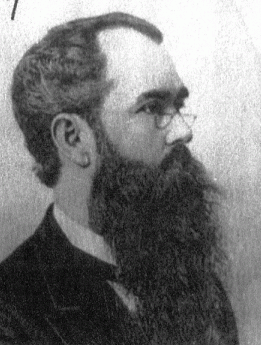|
Orie Bower "The lawyer poet of the Rockies"
[Editor's Note: Elizabeth Tang is Orie Bower's great-granddaughter. She resides in Anaheim, California] Orie Bower is eleven years old when the Civil War begins. He is too young to serve, but old enough to remember what happened when Sherman’s troops came through his family’s plantation. He is very much aware that his “fate of birth” left him with mixed allegiance. His father, Judge James Cuthbert Bower is opposed to secession, but just as Robert E. Lee could not side against his fellow Virginians, Judge Bower’s loyalty remains with his fellow Georgians. In his introductory poem from his book Dixie Poems, “‘Twas ’64 in Dixie,” the third verse reads: A Southerner? Yes; by fate of birth, At the end of the Civil War, Mr. Bower entered Washington College (now known as Washington and Lee University). Prior to that, he was a student of Talmage Institute in Irwinton, Georgia. By the age of nineteen he was admitted to the bar at Milledgeville, Georgia. He practiced law with his father for a number of years before he became a part of America’s Westward Movement. On July 29th, 1893, the Rocky Mountain Sentinel published a long article about Bower. They ran his illustrated story, “Of Blowse and Wife” on the first page of that issue. In it they declared, “By prominent journals Mr. Bower has been styled 'The Lawyer Poet of the Rockies,' and 'The Dixie Poet.'” The Sentinel continues, quoting another critic, “In glancing at Mr. Bower’s work, what first impresses us is its versatility.” Many of Mr. Bower’s poems carry sub-titles, which help explain where he is and what is happening in history at that time. It’s interesting to note how his prejudices moderate, or simply get replaced with new ones. He becomes happy the slaves are freed, but as he moves westward, he assumes the local passion against the Indians when he is living in New Mexico. When Denver becomes inundated with immigrants he rails that they had better “become ‘Mericanized’ . . . before we all become ‘Foreignized.’" There are 173 poems in Dixie Poems divided between “‘Twas ’64 in Dixie,” and “Miscellaneous Poems.” Mr. Bower writes poems of the Generals, both north and south, but of them all, I found his tribute to Gen. Grant the most touching. U. S. Grant Brave Grant, our wise and noble foe, The mirror sky, with stars asprinkle — Most of “Miscellaneous Poems” speak of love gone right or love gone wrong. The critics expressed a particular liking for “The Old Horse Shied,” but it left me wondering who “Sue” was. Sue was not the name of my great grandmother! The Old Horse Shied The old horse shied, As I’m not wood, [I’d like to thank James Elkins, Professor of Law at West Virginia University for copying Dixie Poems from microfilm for me. My father had hand copied a few of the poems from the original manuscript, so I knew the book was out there somewhere. I just couldn’t find it.] The
Lawyer Poet of the Rockies Poetry Orie Bower, Dixie Poems (Denver, Colorado: The Bower Book Company, 1893) |
